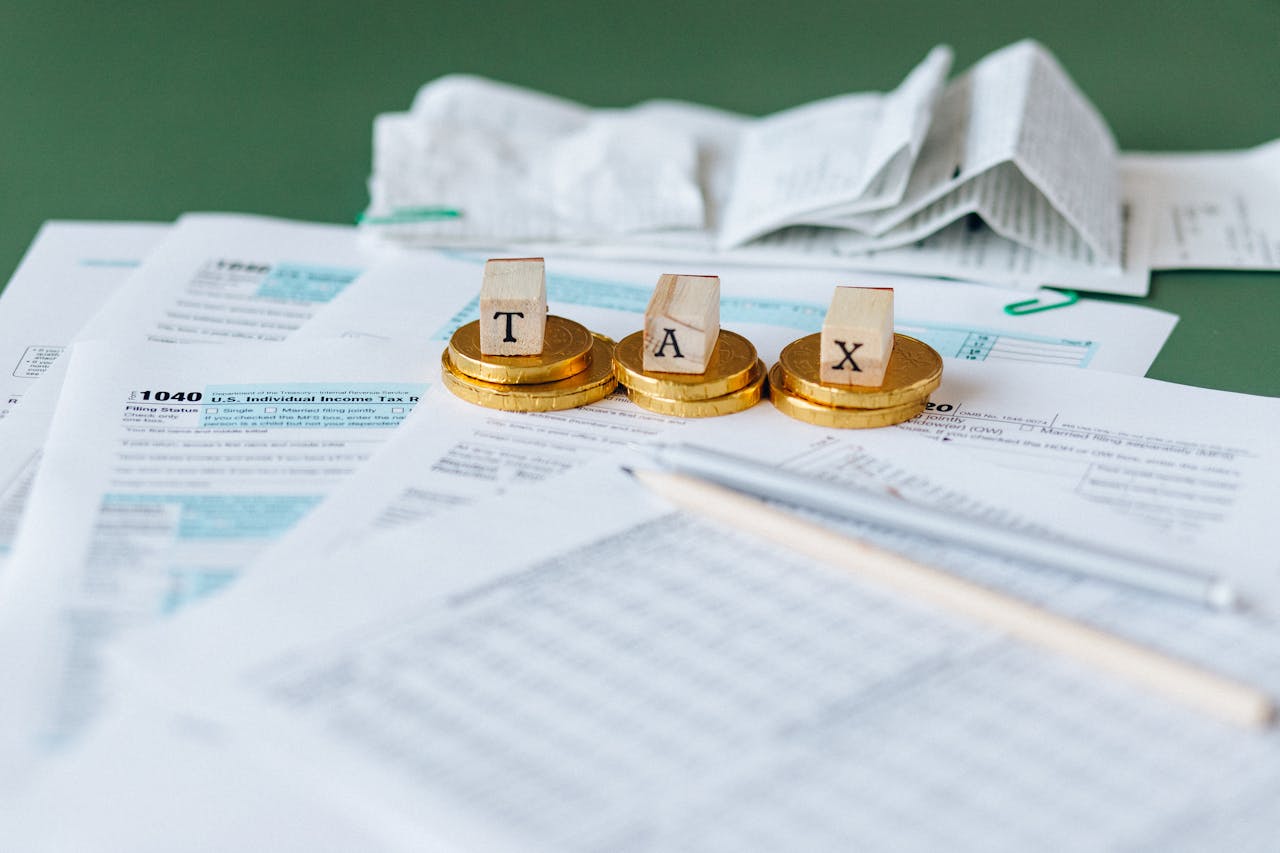Understanding Tax Deductions for Apartment Rentals

If you're a rental property owner, you're likely curious about all the tax deductions available to you. Don't worry - we're here to break it down for you. In this blog, we'll cover everything you need to know, from mortgage interest deductions to travel expense deductions. So, without further ado, let's dive in!
Mortgage Interest Deduction
When you pay interest on a mortgage for a rental property, you can deduct that interest from your taxable income. This deduction can reduce your overall tax burden.
To claim this deduction, ensure the mortgage is specifically for your rental property. Only the interest portion of your mortgage payments is deductible, not the principal. You must also have a detailed record of your mortgage payments and the interest paid each year.
It's essential to separate personal and rental property expenses. This means keeping accurate records and clearly distinguishing between your personal and business finances.
The mortgage interest deduction applies only to properties used for rental purposes. If you use part of the property for personal use, you can only deduct the portion of interest related to the rental use.
Maintain documentation of all mortgage payments and interest paid. This will make it easier to claim the deduction and provide proof if needed.
Property Tax Deduction
When you pay property taxes on your rental property, you can deduct that amount from your taxable income.
To claim this deduction, you must ensure the property is used for rental purposes. You can only deduct taxes that are actually paid to the local government.
As highlighted by Profitwise Accounting, here are some common mistakes to avoid when filing for a property tax deduction:
- Misclassifying personal and business expenses: Keep separate accounts for personal and business expenses. This ensures clarity and accuracy in your tax filings.
- Forgetting to keep detailed records: Maintain a well-organized system for tracking all property tax payments. Use spreadsheets or accounting software to stay organized.
- Failing to account for all eligible deductions: Review tax guidelines regularly to ensure you are aware of all eligible deductions.
- Overlooking property tax changes: Stay updated on local tax laws and any changes that may affect your deductions. Subscribe to newsletters or alerts from tax authorities.
- Not consulting with a tax professional: If needed, hire a tax professional to review your filings. Their expertise can help you maximize deductions and avoid costly errors.
Depreciation Deduction
Depreciation deduction allows you to spread the cost of your property over several years. Each year, you can deduct a portion of the property's value from your taxable income.
To calculate depreciation, you need the cost basis of your property. This includes the purchase price plus any improvements made. You then divide this amount by 27.5 years - it's the IRS-defined useful life for residential rental properties. The result is your annual depreciation deduction.
Depreciation is a non-cash expense. This means you are not actually spending money each year; you are just accounting for the wear and tear on your property.
However, when you sell the property, you may need to recapture the depreciation. This means you could owe taxes on the amount you deducted over the years. It's essential to understand this aspect to avoid surprises during the sale.
Operating Expenses Deduction
You can deduct the costs of running and maintaining your rental property. These expenses include things like repairs, maintenance, utilities, and property management fees.
The expenses must be necessary and ordinary for managing your rental property. For example, if you pay for lawn care, pest control, or minor repairs, these costs can be deducted.
Utility bills, such as water, electricity, and gas used for the rental property, also count as deductible expenses.
Even fees paid to property managers or for professional services can be deducted. This includes legal fees, accounting services, and advertising costs to attract tenants.
Repairs and Maintenance Deduction
Repairs are costs incurred to restore your property to its original state. Examples include fixing a leaky roof, repairing broken windows, or replacing a damaged door.
Maintenance costs cover routine services that prevent future damage. This includes tasks like cleaning gutters, servicing HVAC systems, or painting walls.
These deductions are essential because they can greatly reduce your taxable income. Therefore, you'll pay less in taxes each year. This can significantly impact your bottom line and improve your financial health.
Travel Expenses Deduction
You can deduct costs related to traveling for your rental property business. These expenses must be directly related to managing your property.
For instance, if you travel to your rental property to perform inspections, make repairs, or meet with tenants, you can deduct those travel costs. This includes expenses like mileage, airfare, hotel stays, and meals during your trip.
The deduction also covers trips to purchase supplies, attend real estate meetings, or consult with professionals about your property. You must make sure your travel is always directly related to the management of your rental property.
And there you go! Just remember to pay close attention to the details of each deduction. Manage them properly, and you'll reduce your tax burden in no time. Good luck with your rental property business!